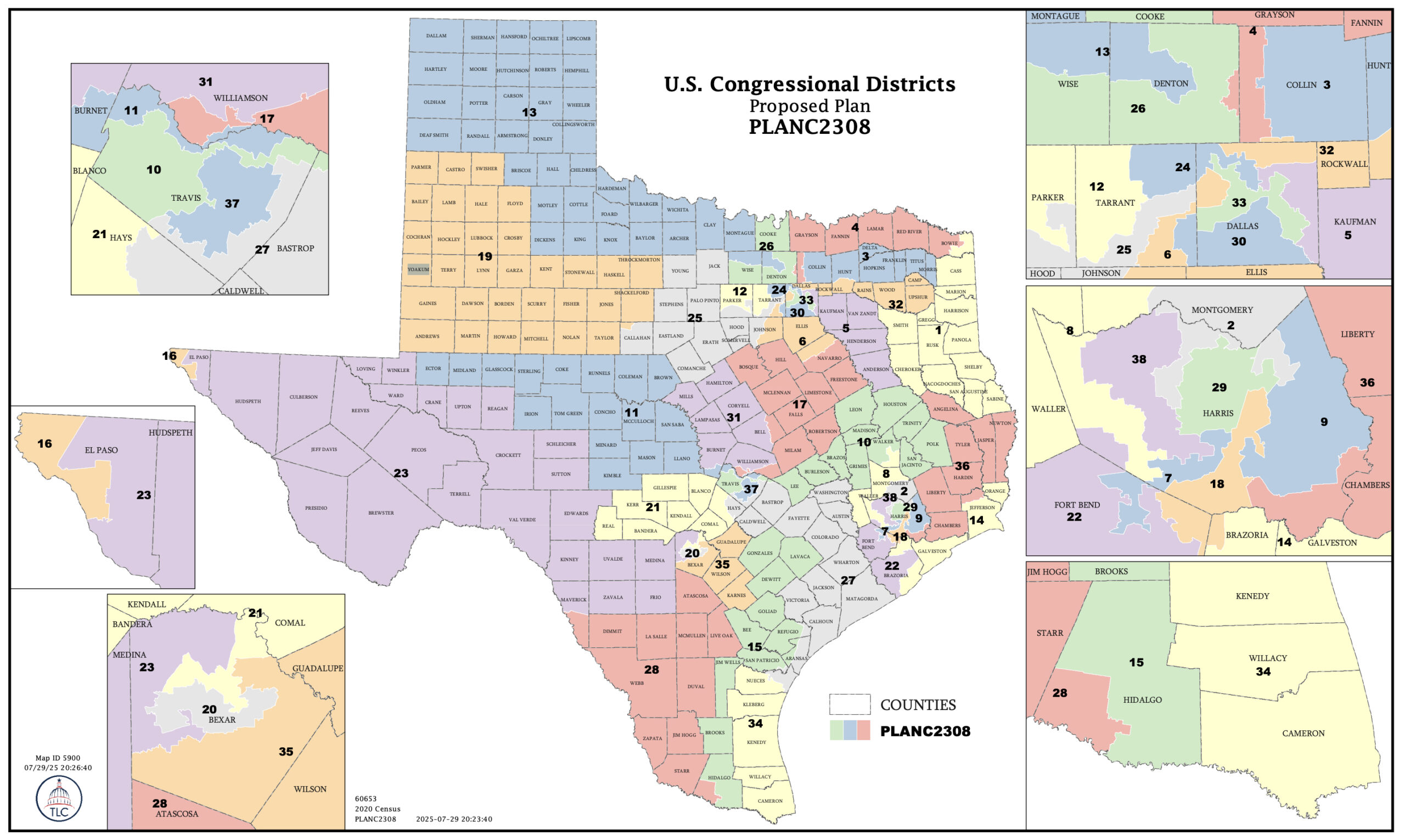By Jim Ellis — Wednesday, Nov. 19, 2025
Redistricting
The already complicated 2025 national redistricting scene is now even more complex.
Yesterday, in a 2-1 ruling, a three-judge federal panel in El Paso ruled that the new Texas map is a racial gerrymander and therefore voided. The panel majority ordered the previous 2021 map reinstated.
Critics say the ruling is questionable since no racial data was used in drawing the map and the decision knowingly defines the US Department of Justice officials’ intent. The 160-page ruling document also quotes liberal news sources to provide support for its supposition that Republican legislators en masse were opposed to a redraw until DOJ added a racial component regarding coalition districts, meaning those where a compilation of all minority groups create a non-white majority.
The state of Texas is expected to appeal the ruling. All appeals of three-judge panel decisions go directly to the US Supreme Court, and the justices must respond.
The ruling also creates a further potential conflicting situation when considering that the Justice Department filed a racial gerrymandering complaint against the new California map on Nov. 13. A California three-judge federal panel will be formed to hear that case.
Things will change to an even greater extent if, which is likely, a 9th Circuit three-judge panel rules that the California map is not a racial gerrymander. If so, then expect the Justice Department to appeal such a ruling, meaning the Supreme Court will be dealing with conflicting decisions within a similar issue set.
Because the Texas political calendar features an early March 3 primary, and candidate filing concludes on Dec. 8, a great deal of confusion now reigns for the candidates running in the various 38 districts. Only District 19, now the open seat of retiring Rep. Jodey Arrington (R-Lubbock), remained constant in the two maps. Under the 2025 Texas plan, nine seats are open and some of the districts are radically different from the 2021 map.
If the Supreme Court issues the requested stay, possibly because the Texas case arguments could be affected with the high court’s eventual ruling on the Louisiana racial gerrymandering case, the 2025 map would likely return for the 2026 election cycle.
Considering the chaos surrounding the Lone Star State case, what the California decision could be, and the subsequent US Supreme Court action on the coming stay motion, along with the ultimate Louisiana ruling, it is possible that Texas could postpone the state primary.
There has been precedent for postponing a primary for a set of affected political contests, in this case the congressional campaigns because of redistricting. Doing so would give the high court more time to render a final decision that hopefully would be definitive as it relates to racial gerrymandering.
Louisiana, awaiting their SCOTUS redistricting decision after going through a second round of oral arguments, has already postponed their primary one month — from April 18 to May 16.
To further complicate matters, Gov. Greg Abbott has now ordered the special runoff election to fill Houston’s 18th District congressional vacancy to be held on Jan. 31, 2026.
The runoff features a contest between Harris County Attorney Christian Menefee (D) and former City Councilwoman Amanda Edwards (D), both of whom qualified for the secondary election in the Nov. 4 initial vote.
Immediately upon winning the special election, the victor will face Rep. Al Green (D-Houston) in the regular 2026 primary election on March 3. Now with the confusion about where the candidates must file, the District 18 special election could be one more reason the Texas regular primary might be postponed. TX-18 is vacant because incumbent Rep. Sylvester Turner (D) passed away earlier in the year.
With such a short time frame affecting so many Texas congressional candidates and electorates, firm decisions must soon be made.

